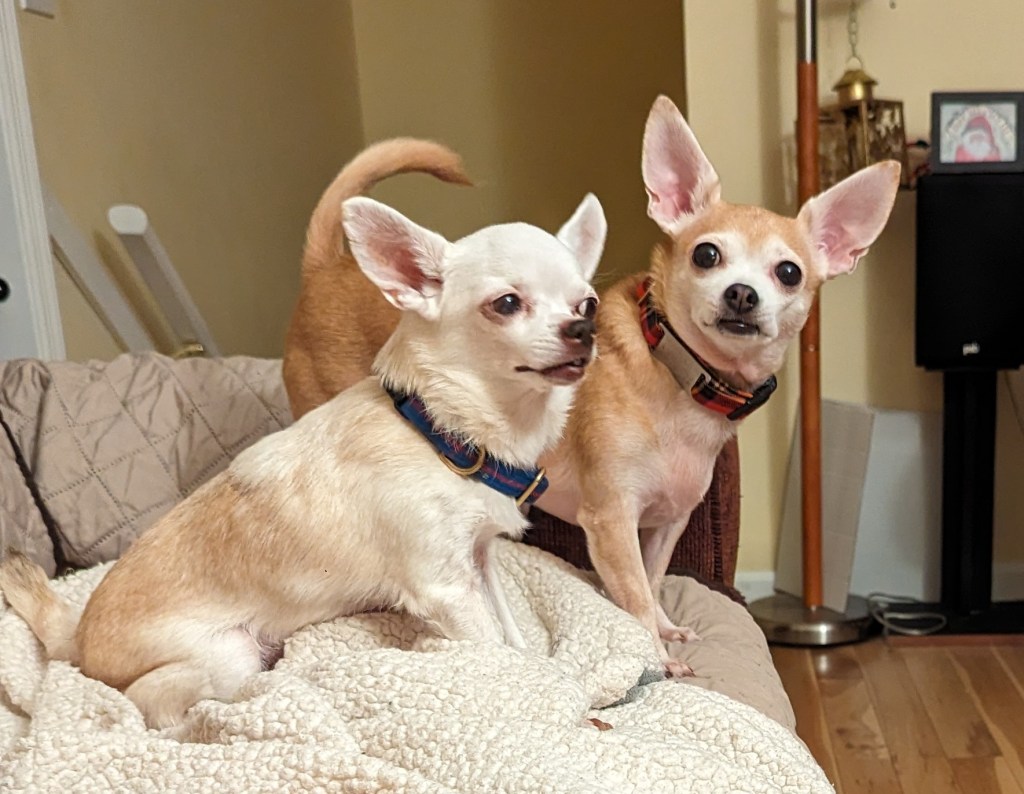Last year I wrote some about how the ending of Paul Tremblay’s The Cabin at the End of the World, which I had just read, had been changed in pretty big ways for the film adaptation, Knock at the Cabin, directed by M. Night Shyamalan. At the time I hadn’t seen the movie for myself, and now that I have I wanted to circle back on the matter.
To recap (in spoiler-filled fashion), the book and movie are both about a family – two dads and their young daughter – who are beset in the titular cabin by a group of people who claim that the apocalypse is imminent and the only way to stop it is for one of the family members to kill another (suicide won’t work). The family refuses the bargain and the tension creeps up as it appears that, just maybe, the end of the world is nigh.
As I said last year:
Here’s where things part ways, significantly, between book and movie. In the book there is a struggle over a gun that leaves the little girl dead. Eventually the dads escape (all the intruders die) and they confront the question of sacrificing one of themselves just in case the world is really ending (one is now more of a believer than the other). Ultimately they decide not to, essentially concluding that any kind of God that would require such a thing isn’t worth obeying, and they walk off into a brewing storm that may or may not just be a storm. In the movie, by contrast, the girl is not shot and one of the dads decides to sacrifice himself to save the world on her behalf. The girl and her remaining father leave and find evidence that the sacrifice really is stopping the world from ending.
In that earlier post I was focused on the question of which ending was better described as a “happy” ending – the one where characters refuse to play the game of an abusive deity or the one where they sacrifice for the greater good. Both are a choice and neither is wrong in any kind of a normative sense – one will work better for some, the other for others. Nonetheless why the choice was made is kind of fascinating.
Having seen the movie I did my usual post-viewing due diligence (reading reviews and such) and came across this article which goes into why the ending for the movie was changed:
Steve Desmond and Michael Sherman, who wrote the screenplay with Shyamalan, agreed the book’s original, grim ending had to be changed for film.
“We adapted it slightly different than the book, and then [Shyamalan] had a whole new vision for what the ending could be,” Desmond and Sherman told Variety at the “Knock at the Cabin” premiere. “The book is the book, and the movie is the movie, and we think they both were exceptional mediums. This is a big, wide release movie that is meant for a very large audience. There are some decisions that the book made that were pretty dark and may have been a little too much for a broader audience. That was a decision that [Shyamalan] immediately recognized. It’s a great ending now.”
Now, without a doubt, more people saw Knock at the Cabin than read The Cabin at the End of the World. That’s true of any book turned into a movie or TV show (alas). Is that a good reason to change an ending? It feels kind of chickenshit to me to decide the masses can’t handle the ambiguity of the original and decide to spoon feed them a “happier” ending. It’s one thing to imagine that you’re just improving on it from an artistic standpoint (Shyamalan, at least, appears to lean more this way in terms of his outlook on the world), but to admit to dumbing it down feels cheap.
It should be clear by now that I prefer the book’s ending. The entire story, for me, is all about ambiguity: Is what these people are saying about the world ending real? Is it a hoax? Are they honest, but mentally ill, believers? It also gets at an issue that’s frequently lost in popular discussion about the existence of one god or the other – that even if some being like that exists it might not be worthy of worship or obeisance. The book leaves you much more to chew on than the movie does. I may be in the minority, but that’s OK.
Endings are hard. They’re harder still if you’re engaging in some kind of triangulation in an attempt to find the “right” ending for a particular audience, be it broad or narrow casted. Find the ending you think works best for the story. If it puts off some people, well, that sucks. You can’t please all the people all the time – and most of the time it’s a folly to even try.





